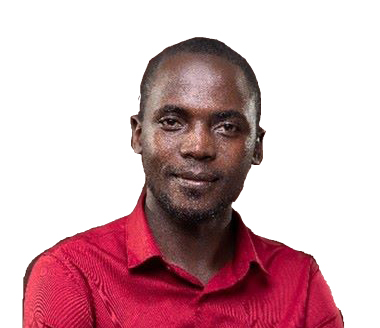Prime
New tech offers chance to reap rewards from imagining the future

What you need to know:
- Taking all these factors into consideration, I still believe Uganda should invest and adopt IoT because the benefits outweigh the challenges.
When it comes to adopting the Internet of Things (IoT), a trend that has taken the world by storm and quickly emerged as one of the most important technologies of the 21st century, Ugandans are largely in the dark.
There is little or no grasp of what this term implies and this has greatly influenced how the technology is being adopted in Uganda – very slowly.
IoT describes the network of physical objects (things) that are built with sensors, software, and other technologies to connect and exchange data with other devices and systems over the internet.
It is estimated that more than seven billion IoT devices are connected today, but experts expect the number to increase to 22 billion by 2025 worldwide. These devices range from ordinary household objects to sophisticated industrial tools.
In a typical IoT application, say a home security system, a camera will record an intruder and immediately send the data to a cloud server.
The server, using machine learning, will determine that the received data is an intruder, and will then immediately call the police, notify the homeowner, activate the security alarms, and lock all the doors.
However, like so many things in life, IoT has both advantages and disadvantages. IoT offers easy, quick and seamless communication, and supports communication between devices.
This enables the devices to stay connected which improves transparency and quick decision making.
Due to physical objects being connected and controlled digitally and centrally with wireless infrastructure, automation and control is easy. Human intervention is at a minimum or none at all.
The machines can communicate with each other leading to faster and timelier output. With all this information received in real-time decision-making is rapid due to the equally rapid delivery of trusted information which leaves no room for manipulation by people.
Supported by this real-time automation, monitoring is also made easier and all of which contribute towards an improved lifestyle. Not surprisingly though, with every great thing, comes a downside.
The massive data transmitted by IoT devices means there is always a risk of losing your privacy. For example, a patient’s medical data could be accidently accessed by someone on the internet.
More frightening is the prospect of a notorious hacker accessing someone’s pace-maker operating details then turning it off. Or worse threaten to do so if you do not pay a ransom.
The complexity in the design and connection of these systems also raises the risk of system failures.
These can lead to serious consequences such as death. One possibility is when the power supply is turned off by IoT devices, because of a software issue then all oxygen generation machines shut down in hospitals.
The adoption of IoT, will inevitably result in most if not all unskilled workers and helpers ending up losing their jobs.
Another controversial issue concerns the knock-on effects of growing automation on our daily activities and its controlling aspect on our lives.
Taking all these factors into consideration, I still believe Uganda should invest and adopt IoT because the benefits outweigh the challenges.
Sectors and companies that adopt IoT are bound to see higher efficiencies in all areas of operations. They will also see sharp reductions in fraudulent activities as fewer parts of their processes will require human interactions.
It is true, setting up an IoT system will be costly, but in the long run, the benefits will overshadow the initial expenditure and maintenance.
In Uganda, we can deploy it in agriculture to give us accurate soil moisture and fertility readings in real-time to improve yields, (augment this with machine learning to recommend which plants to grow on which soil and during which seasons).
Adoption of IoT is a huge decision, both practically and financially. But ‘fortune favours the brave’. Uganda should take a leap of faith and reap the rewards that come with imagining the future.
Mr Isaac Ssemugenyi is a software engineer




